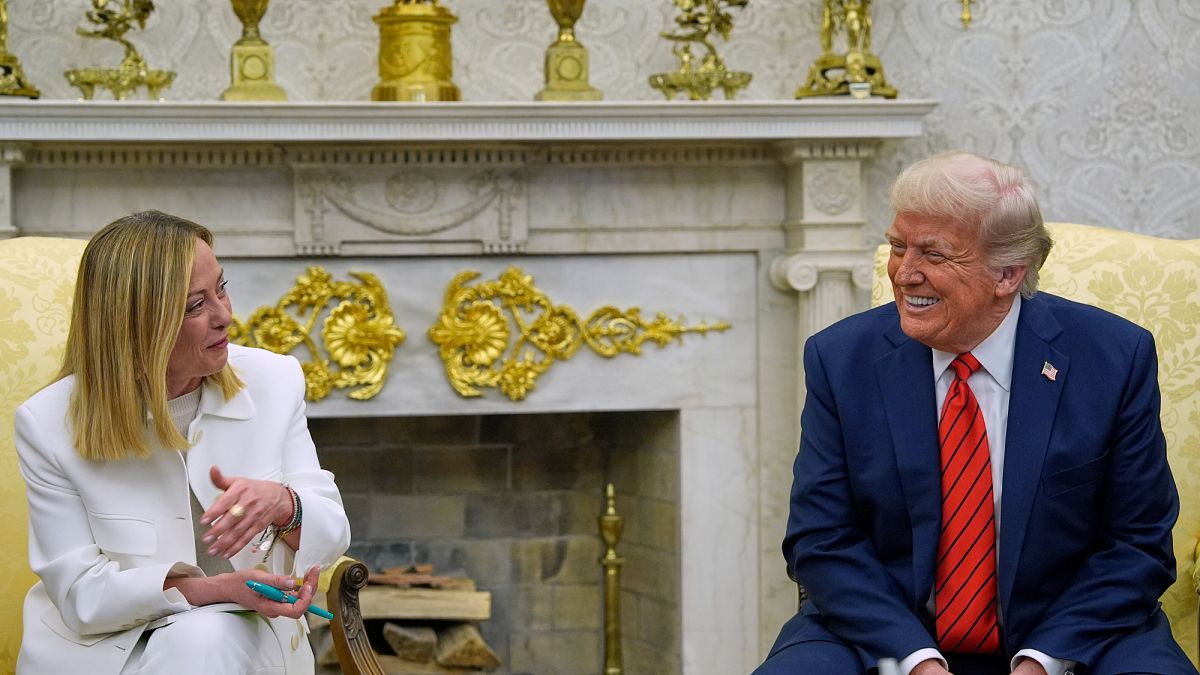By Krzysztof Bolesta, Poland's Deputy Minister of Environment, and Thomas Pellerin-Carlin, French MEP
The opinions expressed in this article are those of the author and do not represent in any way the editorial position of Euronews.
Cars are and will remain the main mode of transport for many people across all of Europe, from Portugal to Poland, and from Sweden to Greece, even as access to clean and affordable public and active transport options increases.
Yet, access to electric vehicles remains inequitable for many Europeans.
Accessibility to and affordability of clean transport is not only a key pillar of the just transition, but also important at the national scale in terms of energy sovereignty – in other words, reducing dependence on foreign oil and gas.
Moreover, the ongoing electrification of transport makes sense economically. Electric cars are cheaper to use as the electric engine is more reliable and more efficient. Furthermore, petrol or diesel are more expensive per kilometre than electricity charged at home.
However, the battery costs still make the upfront cost of the electric car too high for many Europeans, and even the expected savings on fuel cost are not enough as an incentive for most households to switch from internal combustion engine to electric.
As a result, Europeans living in rural areas remain vulnerable to oil price fluctuations and will be additionally affected by the introduction of EU ETS 2.
If implemented without consideration of impacts on the most vulnerable households, ETS 2 may exacerbate energy poverty and transport exclusion.
Poorer European families will struggle to get an affordable electric car as the second-hand EV market is still in its infancy, leaving themselves exposed to increasing prices of petrol or diesel.
We need a social leasing scheme
A social leasing scheme for electric vehicles where state support makes EVs affordable for a wider group of consumers is one way to ensure equitable access to clean cars for less fortunate Europeans, while also creating new markets for the European automotive industry.
A European social leasing scheme for small electric cars is a clever way of making electric cars accessible and affordable also outside of urban areas.
The French example shows that without any upfront costs, the beneficiaries could access a clean car for a monthly rent of approximately €150. For countries like Poland, this cost would need to drop further to around €25 a month, which is a challenging but possible price level.
Countries introducing a social leasing scheme should focus on small, light electric cars that are more affordable, more energy efficient and have a lesser impact on climate and the environment.
By ensuring that those cars are made in Europe, we would also stimulate the European automotive sector. With a value chain accounting for 13 million direct and indirect jobs and €1 trillion contribution to the EU GDP, the car industry has been a pillar of the EU economy.
But for the last couple of years, it has been struggling to overcome two parallel challenges: increased competition with manufacturers mainly from China, and the urgent need to electrify its products.
Fit-for-purpose solutions
A social leasing scheme is compatible with existing EU funding mechanisms. In the short term, it could be co-financed through the Recovery and Resilience Facility.
In the longer term, the Social Climate Fund could also be used to support such a scheme, and leasing at EU level could be enabled on the basis of lessons learned from the French market.
If implemented from 2025 to 2035, it could benefit up to 10 million European families while also helping Europe’s automotive sector to increase its competitiveness. It would also stimulate the European second-hand market for electric vehicles, thus benefiting even more EU citizens.
By pooling national demand, we could secure that 1 million small electric cars will be sold in the EU every year for the next decade. Such volume will also lead to a smaller unit cost, making the social leasing cheaper – but only if it is coordinated at the EU level.
To conclude, supporting people in acquiring clean transportation through a social leasing scheme makes sense from every perspective – and enabling EU-wide coordination makes it even more efficient and accessible.
We applaud the European Commission for committing in the Clean Industrial Deal to develop Guidance for member states on social leasing for zero-emission vehicles.
This guidance should be advanced quickly and developed in partnership not only with member states but also NGOs to prepare fit-for-purpose solutions that can benefit citizens and contribute to creating jobs in the EU automotive sector.
Krzysztof Bolesta serves as Poland's Deputy Minister of Environment, and Thomas Pellerin-Carlin (France-S&D) is a Member of the European Parliament (MEP).

 2 days ago
5
2 days ago
5






 We deliver critical software at unparalleled value and speed to help your business thrive
We deliver critical software at unparalleled value and speed to help your business thrive






 English (US) ·
English (US) ·